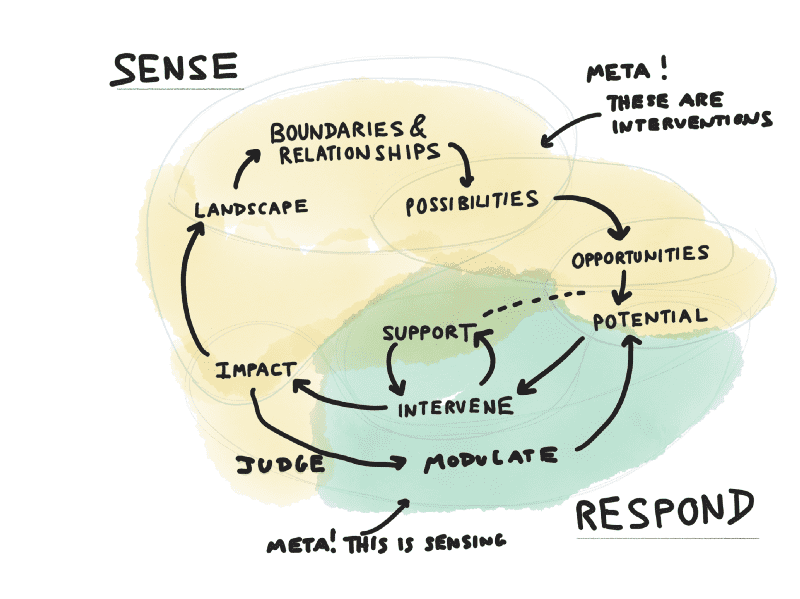I was talking to a friend the other day. Referring to their particular strengths/weaknesses, they said the following (paraphrasing):
I’m extremely sensitive to problems and system dynamics. But the trouble is that I’m terrible at proposing solutions!That got me thinking. Approaches/models/theories like OODA and sense and respond involve a number of different skillsets:
- Observation … taking in large amounts of information
- Systems thinking
- Dreaming up ideas to exploit opportunities
- Matching “best practices” to a specific context
- Supporting initiatives (clearing roadblocks and coaching)
- Predicting how competitors will respond
- Linking actions to impacts (we did this, and that happened)
- Seeing the opportunities in a tough situation
- … and many more Below I take a quick stab at trying to group some of these high level skills as they relate to a simplified feedback loop (sense and respond in this case).
Where in this system do you thrive? Where do you have trouble?
Sense the Landscape
We view the landscape without deconstructing it. Focus on observation.
Sense Boundaries & Relationships
How do these parts interact? Where are the boundaries? We understand the landscape as a system of systems.
Sense Possibilities
What might happen here moving forward? We contemplate possible futures. Is the landscape evolving in a particular direction? Is the landscape subject to certain laws and patterns?
Sense Opportunities
Where are the opportunities and threats? We sense the opportunities for survival and improved fitness within that evolving landscape.
Sense Potential
[Some intervention] may be beneficial in this situation! We pair interventions with opportunities in the landscape. To do this, we must be familiar with the intervention AND its suitability within the current landscape
Intervene
Intervene to sense/change the landscape. All of the items in this list are interventions. Sensing is an intervention. Intervention is an act of sensemaking.
Support Interventions
[Some intervention] will work better if we do [some other intervention]. Create an environment conducive to an intervention being more successful. This supporting intervention might involve teaching, coaching, or removing external blockers.
Sense Impact
The landscape is changing because we did [some intervention]. The ability to observe the impact of interventions on the landscape.
Judge Impact
[Some intervention] is positive/negative. Labeling the impacts we see on the landscape as positive or negative in relation to some desired change in the landscape.
Modulate Interventions
Let’s do more of [some intervention] and less of [another intervention]. The decision to amplify/dampen one or more interventions in relation to some desired change in the landscape.
